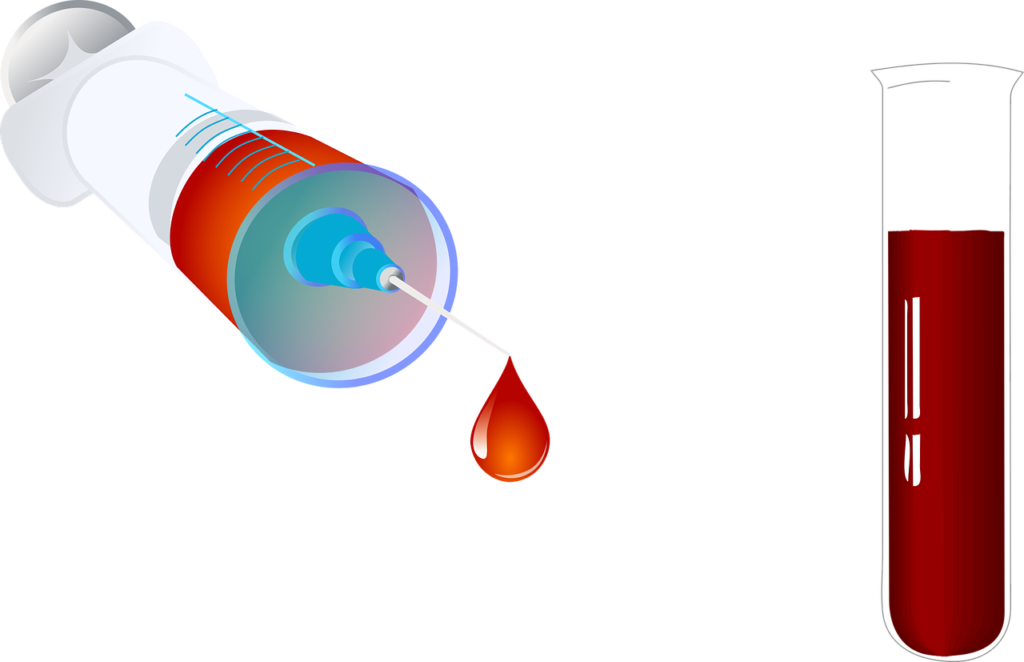Imagine a world where a simple blood test could detect not just one or two types of cancer, but a staggering 50. Sound too good to be true? Well, think again. In this blog post, we delve into the groundbreaking potential of a blood test that has the power to save countless lives. Whether you’re a medical professional, a patient, or simply someone passionate about advancements in healthcare, prepare to be amazed by the game-changing implications of this revolutionary technology. So, buckle up, because we’re about to take you on a journey that will forever change the way we approach cancer detection.
WHAT IS GALLERI BLOOD TEST?

The Galleri test is a screening test that detects a signal shared by over 50 types of cancer, including those that are not typically screened for with a single blood test. It is important to note that the Galleri test is not a diagnostic tool for cancer, and additional diagnostic testing may be necessary to confirm the presence of cancer.
The Galleri test does not provide information about future genetic risk for cancer but instead focuses on detecting active cancer. In order to do so, it analyzes over 100,000 DNA regions and more than a million specific DNA sites from a blood sample. By screening for a signal that is indicative of multiple cancers, the test can also predict the specific tissue type or organ associated with the detected cancer signal.
The Galleri multi-cancer early detection test is recommended for adults who have a higher risk of developing cancer, particularly those who are 50 years old or older. It should be used alongside other cancer screening tests that your healthcare provider suggests, rather than being a replacement for them. However, pregnant individuals, those who are 21 years old or younger, and those undergoing active cancer treatment should not undergo the Galleri test.
The Galleri test is a powerful tool for the early detection of cancer. It has been designed to identify the presence of cancer cells, even in the early stages of the disease.
The test has been shown to be highly accurate, with a positive predictive value (PPV) of 43.1%. This means that if the test detects a “Cancer Signal”, there is a 43.1% chance that the person has cancer. The False Positive Rate (FPR) is 0.5%, which means that there is a 0.5% chance that the test will detect a “Cancer Signal” in a person who does not have cancer.
The Galleri test is particularly effective for people over 50 years of age, as this is when the risk of cancer increases. In fact, the test is expected to detect a “Cancer cell
Galleri, a cancer screening test, has successfully identified a common signal shared by more than 50 cancer types, including aggressive and lethal cancers that account for approximately two-thirds of cancer-related deaths. This groundbreaking study has revealed that Galleri can detect early signs of cancer before symptoms manifest. However, it’s important to note that not all cancers can be detected in the blood using this test, as it is limited to specific types. The list of cancers detected by Galleri includes
- Adrenal Cortical Carcinoma
- Ampulla of Vater
- Anus
- Appendix, Carcinoma
- Bile Ducts, Distal
- Bile Ducts, Intrahepatic
- Bile Ducts, Perihilar
- Bladder, Urinary
- Bone
- Breast
- Cervix
- Colon and Rectum
- Esophagus and Esophagogastric Junction
- Gallbladder
- Gastrointestinal Stromal Tumor
- Gestational Trophoblastic Neoplasms
- Kidney
- Larynx
- Leukemia
- Liver
- Lung
- Lymphoma (Hodgkin and Non-Hodgkin)
- Melanoma of the Skin
- Merkel Cell Carcinoma
- Mesothelioma, Malignant Pleural
- Nasal Cavity and Paranasal Sinuses Nasopharynx
- Neuroendocrine Tumors of the Appendix
- Neuroendocrine Tumors of the Colon and Rectum
- Neuroendocrine Tumors of the Pancreas
- Oral Cavity
- Oropharynx (HPV-Mediated, p16+)
- Oropharynx (p16-) and Hypopharynx
- Ovary, Fallopian Tube and Primary Peritoneum
- Pancreas, exocrine
- Penis
- Plasma Cell Myeloma and Plasma Cell Disorders
- Prostate
- Small Intestine
- Soft Tissue Sarcoma of the Abdomen and Thoracic Visceral Organs
- Soft Tissue Sarcoma of the Head and Neck
- Soft Tissue Sarcoma of the Retroperitoneum
- Soft Tissue Sarcoma of the Trunk and Extremities
- Soft Tissue Sarcoma Unusual Histologies and Sites
- Stomach
- Testis
- Ureter, Renal Pelvis
- Uterus, Carcinoma and Carcinosarcoma
- Uterus, Sarcoma
- Vagina
- Vulva
The multi-cancer early detection (MCED) blood test is priced at a steep sum of 70500. Presently, this test is exclusively accessible in the United States.



